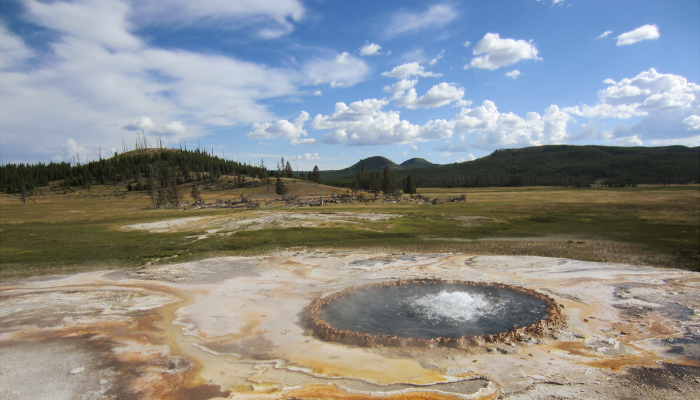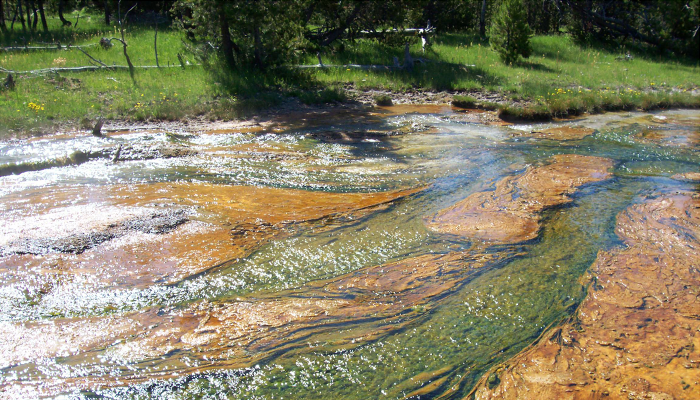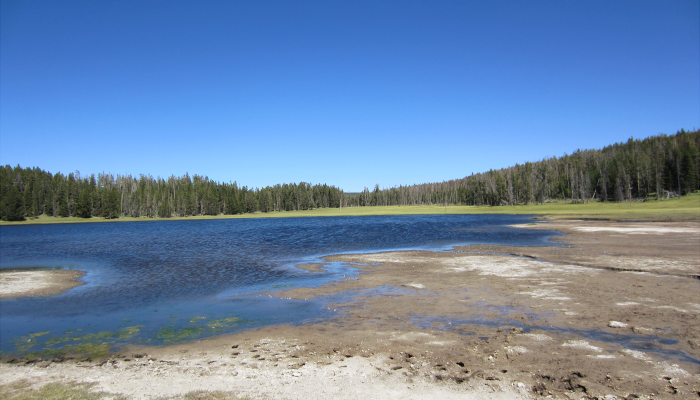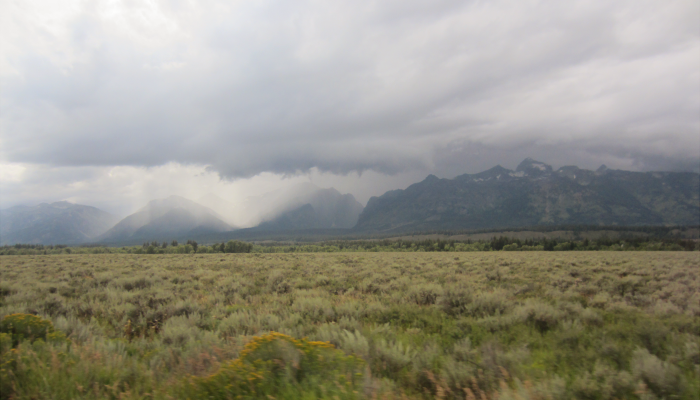
Profile
PhD in quantitative biochemistry | Data scientist
- CV: PDF
- GitHub: gmboyer
- LinkedIn: grayson-boyer
- Twitter: @gmboyer
Research and data science portfolio

PhD in quantitative biochemistry | Data scientist
Featured below are brief descriptions of several projects I have been involved in that are relevant to data science.

Data processing, analysis, and visualization in R. I study single-celled microorganisms living in hot springs of Yellowstone National Park, USA and elsewhere around the world. One way that these heat-loving "thermophilic" microbes have adapted to life in boiling water is by making their outer layer, or cell membrane, resistant to heat or chemical stress (such as acid). I look for any patterns in the abundances and chemical structures of the lipid molecules that compose cell membranes and allow these microbes to thrive in extreme conditions. Most of my programming experience stems from writing R scripts to automate tedious, repetitive tasks, datamine output from other software, perform statistical analyses, and visualize results.

Machine learning in R. This project was part of a successful proposal to NASA Exobiology investigating the capacity of some microorganisms to perform photosynthesis in hot springs. I took our sizable database of 2500+ hot spring samples and performed multivariate analyses of geochemical measurements to create models for predicting conditions amenable to photosynthesis. A sample is shown in the R Jupyter notebook demo linked below which includes the use of conditional trees (ctree) in a training set to generate models that are then used to predict values in a test set.

Data processing and text mining in R. Checking for proper charge balance in water samples is a form of analytical quality control. This Python Jupyter notebook takes tabular water chemistry measurements, runs them through geochemical software called EQ3/6, then datamines charge balance values from potentially thousands of output files. This is a collaborative effort between myself, fellow graduate student Tucker Ely, and University of Washington Professor Mark Ghiorso as a part of the NSF-funded ENKI project to produce freely available geochemical tools.

Comparative analysis in R. As part of a proposal effort in 2013, I compared weather station climate data to round-the-clock temperature measurements of Great Boiling Springs in Gerlach, NV, made by BENTO box sensors. The goal was to demonstrate the possibility of identifying patterns in hot spring temperature that might indicate influence from air temperature and precipitation.